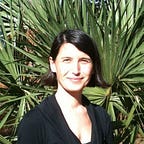Accelerating Pheronym: Bringing the first nematode pheromones to the market
The IndieBio accelerator experience made us realize that the accelerators have a unique function as a catalyst to bring the barriers down for biotech startups. Briefly, accelerators are short-term programs that can provide funds (very important), a network of investors, customers, business mentors and many other intangible perks. Furthermore, it can synergize with the other startup programs such as incubators and mentorship programs. Accelerator networks and support can last long after the program is over. Surprisingly, no two accelerators are alike. The ones we have participated in and the ones we plan to participate in are quite different. The way they are run, the things they offer, and the stages they support are all different. For example, IndieBio accelerator (San Francisco, CA) was the first accelerator we participated in while we were at the UF Innovate the HUB. It was a 4.5-month seed stage accelerator program with a wet lab space, science and business mentors, and $250K investment funding. At the end of the program, there was a highly publicized pitch event. For us, the accelerator lab space and funding synergized with the USDA-SBIR Phase I to develop our first dispersal pheromone prototype (NemaStim) and conduct proof of concept trials.
Businesswise, participating in IndieBio was like being at the right place at the right time. Everyday investors visited IndieBio from all over the world, not just the continental US. The same was true for company business development arms and their decision makers. When we talked to investors and potential customers we figured out where our real market was, and we learned about the markets and uses we never thought about before.
Besides the business and science acceleration, IndieBio came with intangibles that we never expected. Each batch of IndieBio companies is unique. This created an environment where we made friends with the startup founders from our batch and previous cohorts. Now we have a network of CEO friends that can give advice on many aspects of our business and we learn from each other’s experiences. Furthermore, IndieBio was connected to many other programs like California Life Science Institute, Tech Futures Group, law firms for deferred payments and banks with waved fees. They also have negotiated discounts from many business-related service providers. We benefited from DLA Piper’s deferred payment program. The legal help was very helpful for us with terms sheets to raise funds, CDAs, MTAs. These intangibles were not limited to just IndieBio, it extended to other SOSV funded accelerators (sibling accelerators) in different locations in the continental US and in other countries such as England and China. IndieBio provides conference rooms when we have meetings in San Francisco and we have access to conference rooms in sibling accelerators around the world. Recently, we were in New York City and needed a conference room. We stopped by the Food-X accelerator which allowed us to use their conference room in NYC. In short, participating IndieBio accelerator program was one of the best decisions we made for ourselves and Pheronym.
The second accelerator we participated in was the LARTA Institute. It is quite different from IndieBio. It is a virtual accelerator which you can participate from anywhere in the US, so no relocation is required. It only focuses on the commercialization plan. SBIR grant awardees are accepted to the program. LARTA Institute provides no funds and takes no equity.
Like IndieBio, it provided a business mentor who provides feedback to improve our commercialization plan, financial projections, and other business-related aspects. This program synergized very well with many of the business development work we did toward commercialization at IndieBio accelerator.
While we were participating LARTA Institute, we also participated in mentorship programs such as Tech Futures Group and California Life Sciences Institute (CLSI) Fellows of All-Star Team (FAST). Considering we had access to mentoring through our incubators and accelerators, you are probably wondering what value we could possibly receive from a mentoring program? First, you can never have enough mentors. Stay tune for “Mentoring Pheronym.”
Author: Dr. Fatma Kaplan is the CEO/CSO of Pheronym, an entrepreneur, and an accomplished scientist with experience in both biology and chemistry. She has a Ph.D. in Plant Molecular and Cellular Biology and postdoctoral training in Natural Product Chemistry with a focus on isolating biologically active compounds. Dr. Kaplan discovered the first sex pheromone of the nematode Caenorhabditis elegans and published in Nature. Then she discovered that pheromones regulate other behaviors in both parasitic and beneficial nematodes. She has very high impact publications and her dissertation was cited in textbooks within 5 years of publication. Dr. Kaplan worked as a scientist at NASA, the National Magnetic Field Laboratory and the US Department of Agriculture — Agricultural Research Service. Dr. Kaplan co-founded Pheronym to bring nematode pheromone technology to the market and to provide effective, non-toxic pest control for farmers and gardeners.
